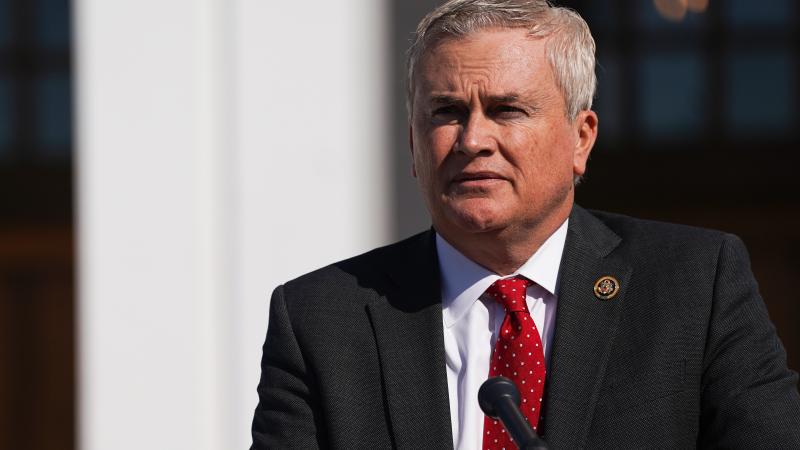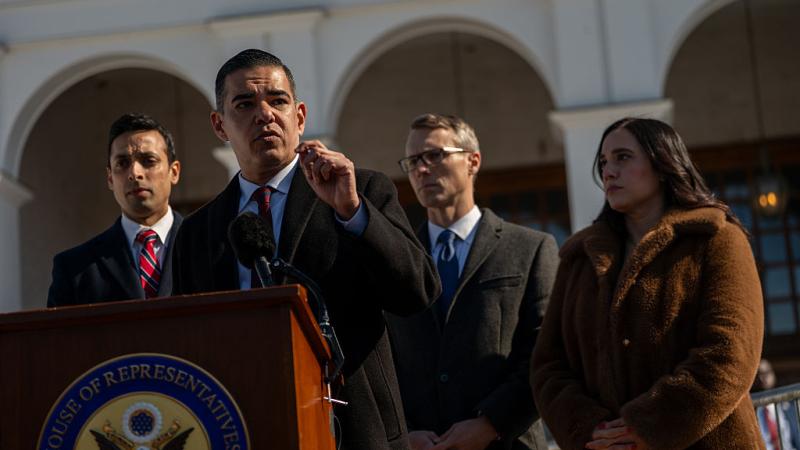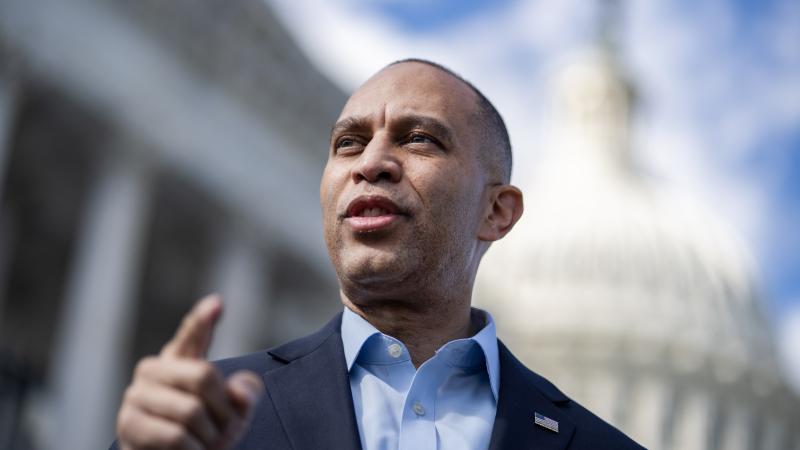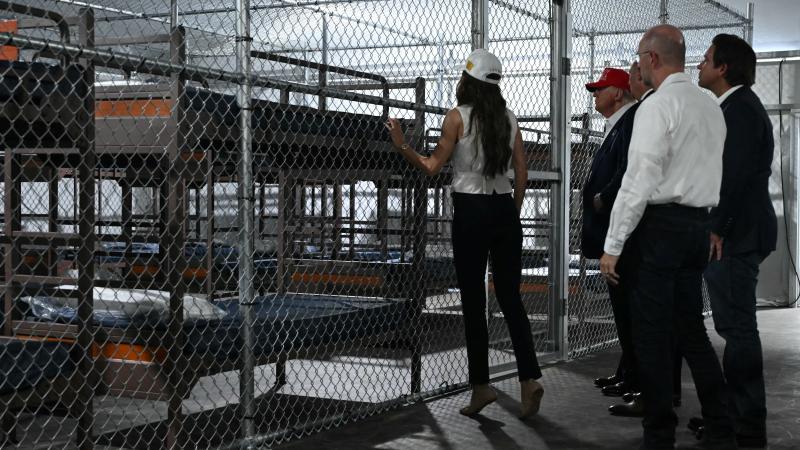Black Lives Matter activist: ‘You don't really need the police for much at all’
Mckesson says the Democrats’ new police reform legislation ‘doesn’t do enough’
DeRay Mckesson, a Black Lives Matter activist, said Wednesday that the police reform legislation that House Democrats have introduced in Congress is a good first step but does not go far enough.
He also argued that the public doesn’t “really need the police for much at all” and that local governments should shift many of their responsibilities to experts such as social workers.
Democrats unveiled the Justice in Policing Act on Monday, which includes banning chokeholds, creating a national registry to track police misconduct and preventing the transfer of military-style weapons to police departments.
“It definitely doesn't do enough. Is this an interesting start? Absolutely. Right. But it definitely doesn't go far enough,” he said during a Washington Post Live discussion about police reform after George Floyd's death with Charles Ramsey, former Philadelphia and Washington D.C. police commissioner.
He spoke as the House Judiciary Committee held its first hearing on police reform after Floyd's death that included an emotional plea from Floyd's younger brother, Philonise Floyd, for Congress to effect change now.
“We want a ban on all neck restraints so that is actually a really important thing. Collecting the data is interesting. We need to make sure that this is going to be a collection of all police violence and not simply police violence that results in death,” Mckesson continued.
Mckesson also shared his interpretation of the “defund the police” demand of the Black Lives Matter organization, explaining that it’s an idea of “moving the money to follow the responsibilities” of experts.
“How do we reduce the power of the police immediately and then how do we shrink the role of the police?” he asked. “Experts should do what experts do. Who should be dealing with a mental health crisis? Probably an expert – probably not a police officer.”
Mckesson added that social workers, not police officers, should respond to homelessness.
“The police are the first people to tell us they’re not social workers. And we agree so we should actually remove those responsibilities and permanently remove those resources and that’s what this idea gets to,” he said. “When you peel it back, you realize you don't really need the police for much at all."
In response, Ramsey said he “doesn’t disagree” with Mckesson’s idea of where the money should go but suggested that the term “defund” can be confusing to the public and “begs for more clarity.”
Ramsey added that he would support reallocating some funds from police departments to social services.
“Police over the years have been asked to do too much,” he said.
Ramsey emphasized, however, that there is still “real violent crime” taking place in cities and towns that needs to be investigated.
“You still have to investigate homicide. You’ve still got to find the person responsible for that,” he said. “There are only certain things that community folks ought to be able to do but what we need is good constitutional policing, not just policing.”
During the discussion, Mckesson called on the media to focus more on police reform efforts in suburban areas as opposed to cities because police are reportedly killing less people in major cities.
“What's interesting when we look at the numbers, is that killings in cities is actually decreasing in a statistically significant way. But it's being offset by increases in rural and suburban community,” he said.















